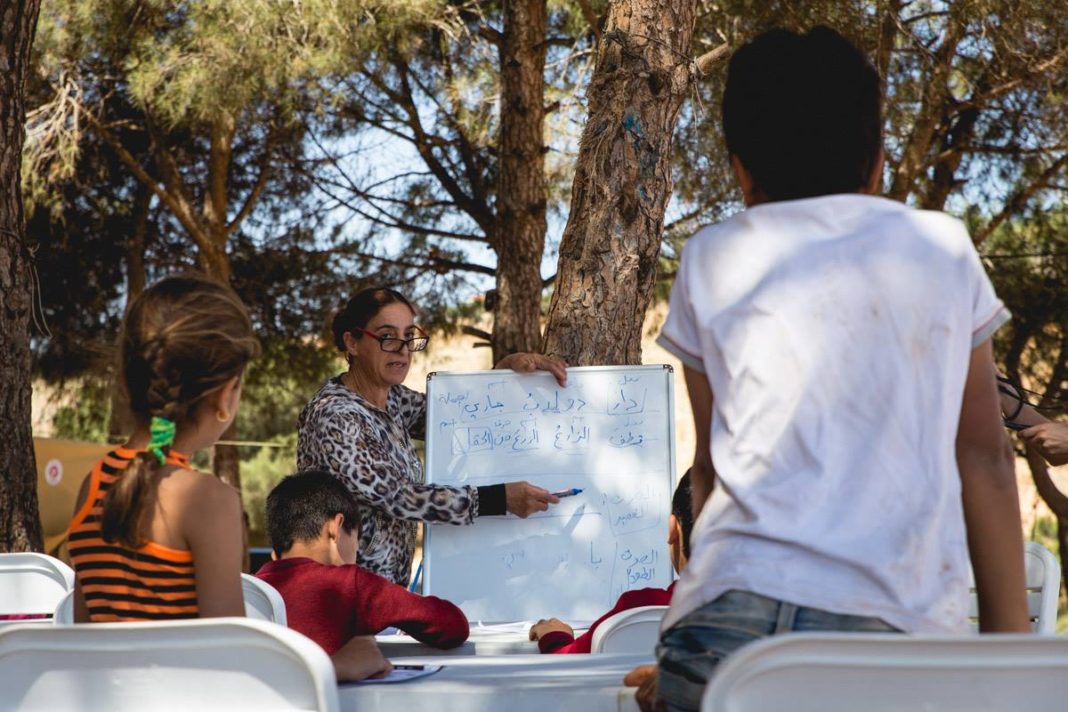More than a quarter of a billion children around the world are not being educated, leading to huge levels of illiteracy and discrimination and adding to tensions in society, a UN human rights expert has warned.
It is imperative for States to reach all children and bring them into schools, the Special Rapporteur on the right to education, Koumbou Boly Barry, told the UN General Assembly in New York.
“Discrimination and exclusion are keeping millions of children out of school, and almost 750 million adults and youth are illiterate,” said Ms. Boly Barry, presenting a report on the barriers to education for the estimated 263 million school-age children who are currently not being educated.
“Out-of-school children often face discrimination due to their economic or geographic circumstances, or because of their cultural, linguistic or ethnic background,” the Special Rapporteur said. “Others have become migrants or refugees, or have had to flee from their homes but remain within their own countries.
“No child should be excluded from school for any of these reasons,” she added.
Inclusive education means providing a shared, safe learning space for all learners, regardless of their personal circumstances, the Special Rapporteur stressed.
“Diverse schools teach tolerance and respect at the earliest opportunity, and can go a long way to addressing many tensions we see in societies around the world,” said Ms. Boly Barry.
“States must not only ensure that schools provide equal opportunities for everyone to access education according to their ability, but must also ensure they receive the support they require to succeed once they are in school.
“Governments must ensure that their legislation and policies eliminate discrimination, and include principles of equity and inclusion at all levels. These must apply to public as well as private schools, to ensure everyone plays their part,” she added.
The Special Rapporteur urged Governments to take positive steps including affirmative action programmes, innovative teaching methods, and full collection of data breaking down the impact of inequality on different groups within society.
States should also join forces with international organisations, development banks and donors to find ways to ensure that all children enjoy the right to education, and not just those who are easiest to reach, she added.
“In order to meet the education-related Sustainable Development Goals, we must bring in the children who are the hardest to reach,” Ms. Boly Barry said.
According to 2016 official reports, 4 million#Syrian_children are out of school! (2.1 million out-of-school children are inside Syria, 700,000 Syrian children are in Turkey, Lebanon, Jordan, Iraq, and Egypt). Amel team is providing education care through its projects for over 1000 Syrian child a year.
Amel Association International considers access to education as a fundamental right for all children. Thus, supporting the most vulnerable children in succeeding and continuing in the formal education system is one of Amel’s priority.
In 2016, Amel provided educational activities (homework support, remedial sessions, reading sessions, etc) as well as recreational and psycho-social activities to more than 1000 vulnerable children through its centers of Haret Hreik and Ain el Remaneh (Beirut Mount Lebanon area) as well as in its Mobile Education Unit (MEU) operating in Marjayoun area (South Lebanon).
In addition to its education program, Amel also puts great emphasis on the psychosocial well-being of children and their parents. Given the critical situation in which many members of host and refugee communities are living in in Lebanon, due to the Syrian refugee crisis, such actions are of utmost importance. Within the framework of its child protection activities, Amel provides psychosocial activities for children as well as awareness sessions and parenting skills for adults.
Based on its extensive experience of working directly in Informal Tented Settlements and remote areas, thanks to its 6 Mobile Medical Units (MMU), and after a comprehensive needs assessment conducted in the Khiam-Marjayoun area, in 2016 Amel Association International decided to launch a pilot project: the Mobile Education Unit (MEU).
The MEU, also known as “The Amel Bus” is a special vehicle equipped with educational and recreational materials (books, educational games, numeric tablets, etc..) as well as a cubicle for psychological consultations, benches, tables and movie-projection equipment. The MEU operates directly in 5 Informal Tented Settlements in the Khiam-Marjayoun area on a weekly basis, and provides vulnerable children with retention support activities (homework support, remedial sessions), psychosocial activities (individual consultations, focus groups, awareness sessions for parents), recreational and cultural activities (weekly movie projections in the ITS, outdoor activities, drawings, theatre, etc).





 Creative Commons Attribution 4.0 International license
Creative Commons Attribution 4.0 International license